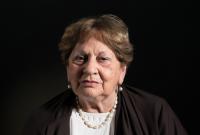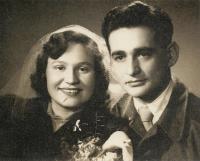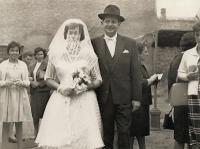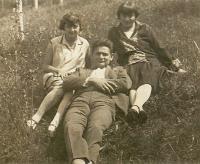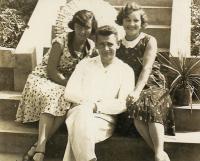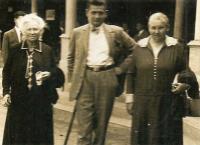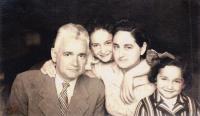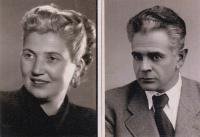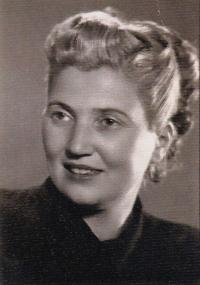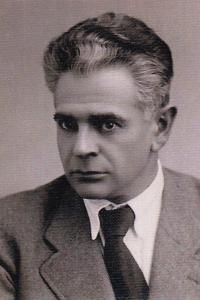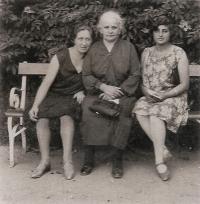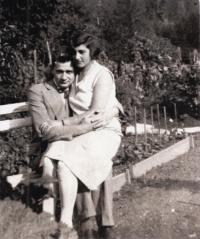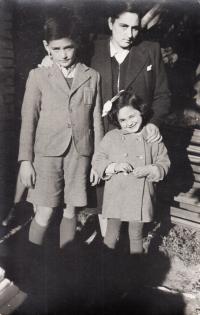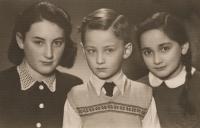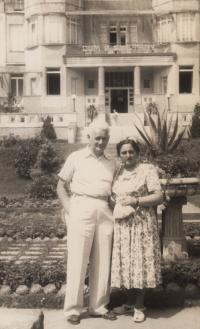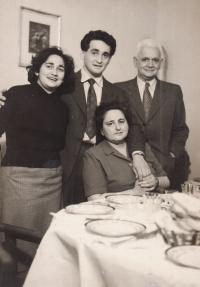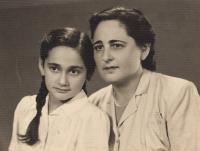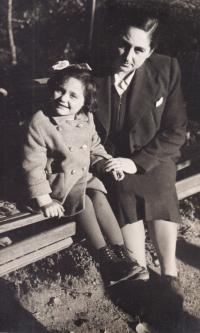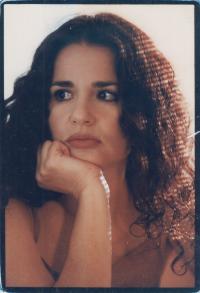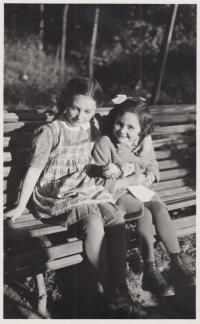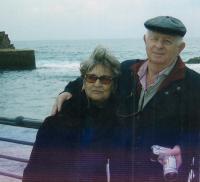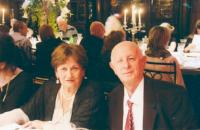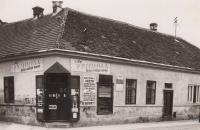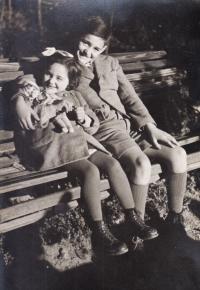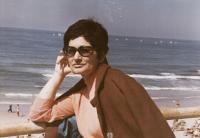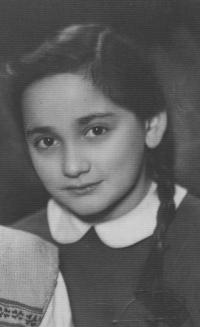Růženka, what do they call you here?
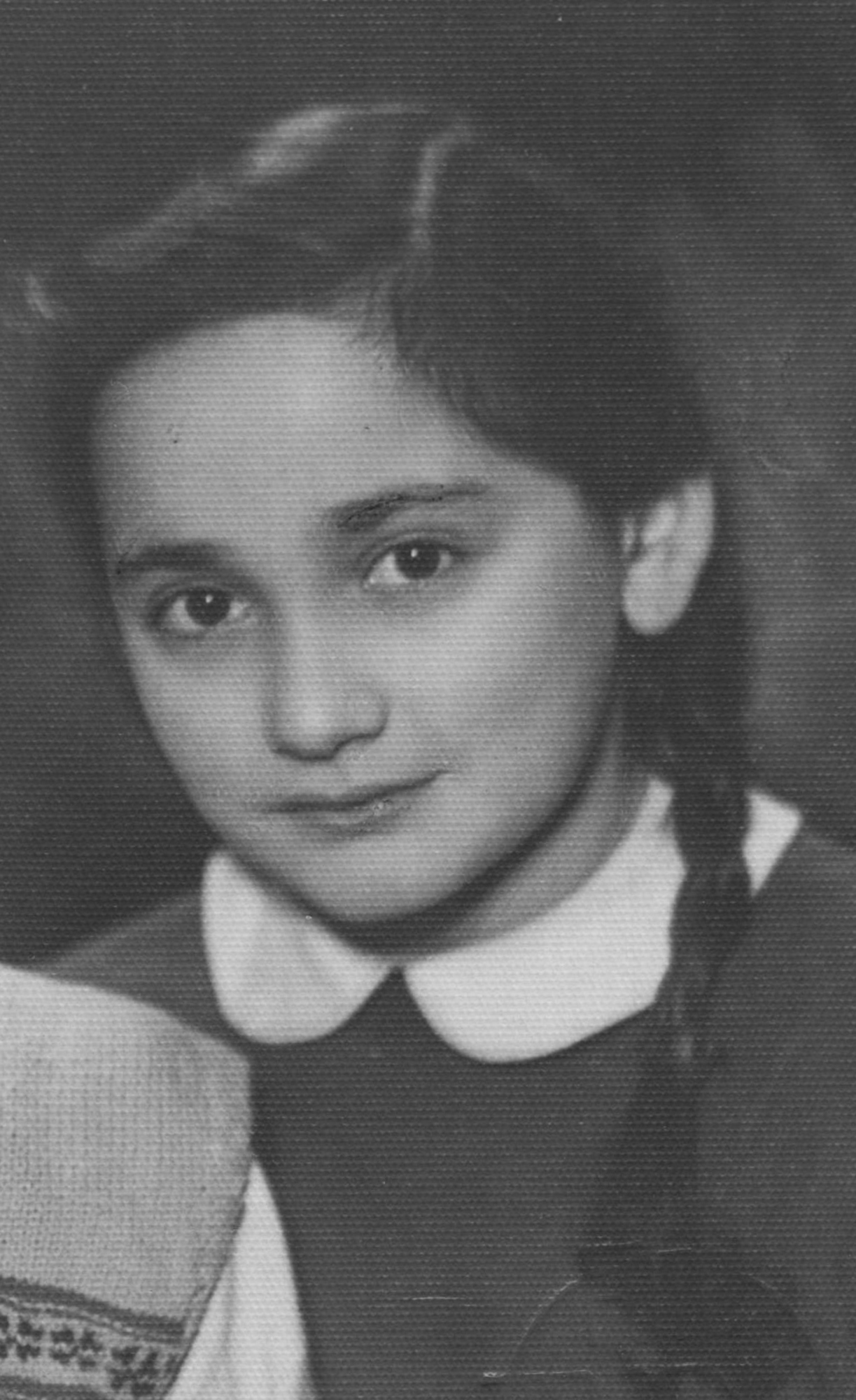
Stáhnout obrázek
Ruth Beery was born Růžena Rónová on 30 July 1937 in Hlohovec, Czechoslovakia. Both her parents were Jews - her father Dezider was from Hungary and her mother Blanka was from central Slovakia. Růžena also had one brother, Bedřich (1930-2009). After the Slovak State was formed in the prelude to World War II, her father acquired Hungarian documents, which protected the family for some time. From spring 1942, after the systematic deportation of Slovak Jews had commenced, the family was on the run, sheltered by various non-Jewish families. They stayed in Tisovec for a while at the house of her mother‘s sister, whose husband was a doctor and was thus protected as a socially beneficial Jew. In October 1944, when her parents decided to flee to Hungary with her older brother, they entrusted the seven-year-old Růžena to the care of Vincentian nuns in Banská Bystrica. She remained in the convent until April 1945, when she was taken back by her parents. After the war the family returned to Hlohovec, in 1948 they moved to Nové Zámky, where her father kept a shop and later worked as a clerk. Růžena Rónová completed grammar school in 1955, she studied chemistry for a year with follow-up studies in construction engineering. She got married and gave birth to an only daughter, but her marriage collapsed after a year. She later met and married her second husband, who lived in Israel, and in spring 1968 she and her daughter legally immigrated to Israel. She changed her name to Ruth, and after a third marriage, took up her new husband‘s surname of Beery. In 1969 her mother also immigrated to Israel. In 1975-1979 she and her husband lived in Mexico. Since 1989 she regularly visits Slovakia and the Czech Republic. Ruth Beery lives in Tel Aviv.
